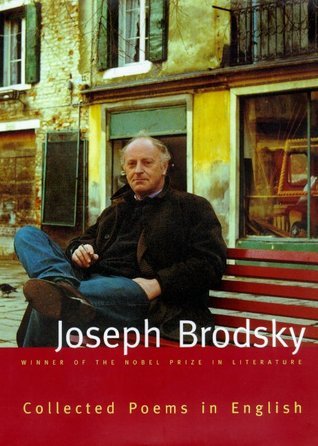Не си допаднахме с Бродский, но на места имаше интересни попадения.
***
Вопли чаек.
Плеск разбивающихся волн.
Маяк, чья башня привлекает взор
скорей фотографа, чем морехода.
На древнем камне я стою один,
печаль моя не оскверняет древность -
усугубляет. Видимо, земля
воистину кругла, раз ты приходишь
туда, где нету ничего, помимо
воспоминаний.
("Элегия")
***
Квадрат окна. В горшках - желтофиоль.
Снежинки, проносящиеся мимо...
Остановись, мгновенье! Ты не столь
прекрасно, сколько ты неповторимо.
("Зимним вечером в Ялте")
***
Свобода -
это когда забываешь отчество у тирана
О, свободата
идва, когато забравиш името на тирана
("Я не то что схожу с ума")
***
Я писал, что в лампочке - ужас пола.
Что любовь, как акт, лишена глагола.
Что не знал Эвклид, что, сходя на конус,
вещь обретает не ноль, но Хронос.
Я сижу у окна. Вспоминаю юность.
Улыбнусь порою, порой отплюнусь.
I wrote: The bulb looks at the flower in fear,
and love, as an act, lacks a verb; the zer-
o Euclid thought the vanishing point became
wasn't math--it was the nothingness of Time.
I sit by the window. And while I sit
my youth comes back. Sometimes I'd smile. Or spit.
("I sit by the window")
***
Гражданин второсортной эпохи, гордо
признаю я товаром второго сорта
свои лучшие мысли и дням грядущим
я дарю их как опыт борьбы с удушьем.
Я сижу в темноте. И она не хуже
в комнате, чем темнота снаружи.
A loyal subject of these second-rate years,
I proudly admit that my finest ideas
are second-rate, and may the future take them
as trophies of my struggle against suffocation.
I sit in the dark. And it would be hard to figure out
which is worse; the dark inside, or the darkness out.
("I sit by the window")
***
Watch your New Year come in a blue
Seawave across the town terrain
In such an inexplicable blue,
As if your life can start again,
As if there can be bread and light --
A lucky day -- and something's left,
As if your life can sway aright,
Once swayed aleft.
("Moscow Carol")
***
And the endless sky over the tiles
grows bluer as swelling birdsong fills.
And the clearer the song is heard,
the smaller the bird
("Stone villages")
***
And the endless sky over the tiles
grows bluer as swelling birdsong fills.
And the clearer the song is heard,
the smaller the bird
("Stone villages")
***
Everything has its limit, including sorrow.
Loneliness cubes a man at random.
a perspective cuts emptiness deep and even.
And what is space anyway if not the
body's absence at every given
point?
("To Urania")
***
Quit the country the bore and nursed me.
Those who forgot me would make a city.
("24/05/1980")
***
We are parting for good, my friend, that's that.
Draw an empty circle on your yellow pad.
This will be me: no insides in thrall.
Stare at it a while, then erase the scrawl.
("Folk tune")
***
To a wanderer the faces of all islands
resemble one another. And the mind
trips, numbering waves; eyes, sore from sea horizons,
run; and the flesh of water stuffs the ears.
("Odysseus To Telemachus")
***
Ти стоиш, водичка, във чашата пред мене
и ме гледаш с очи, избягали изпод крана,
в които, блестейки, е раздвоена
прозрачната твоя вярна охрана.
И знаеш, че аз съм ти бъдещето: фуния,
одушевен стълб, перспективна несъразмерност;
чакат те влакната и тъмотията
на вътрешности, даже на артерии.
Но ти не се плашиш. В затворите има несметни
варианти за субстанции безприютни,
сравнено със свобода под тюл нарешетен
или пък със свобода абсолютна.
Вярно, можеш без мен. Но колкото по-дълго протакам
своя край, толкова по-късно ще свариш
да се превърнеш в дъжд зад стъклата,
шлифоващ без мен тротоарите.
("Чаша вода")

